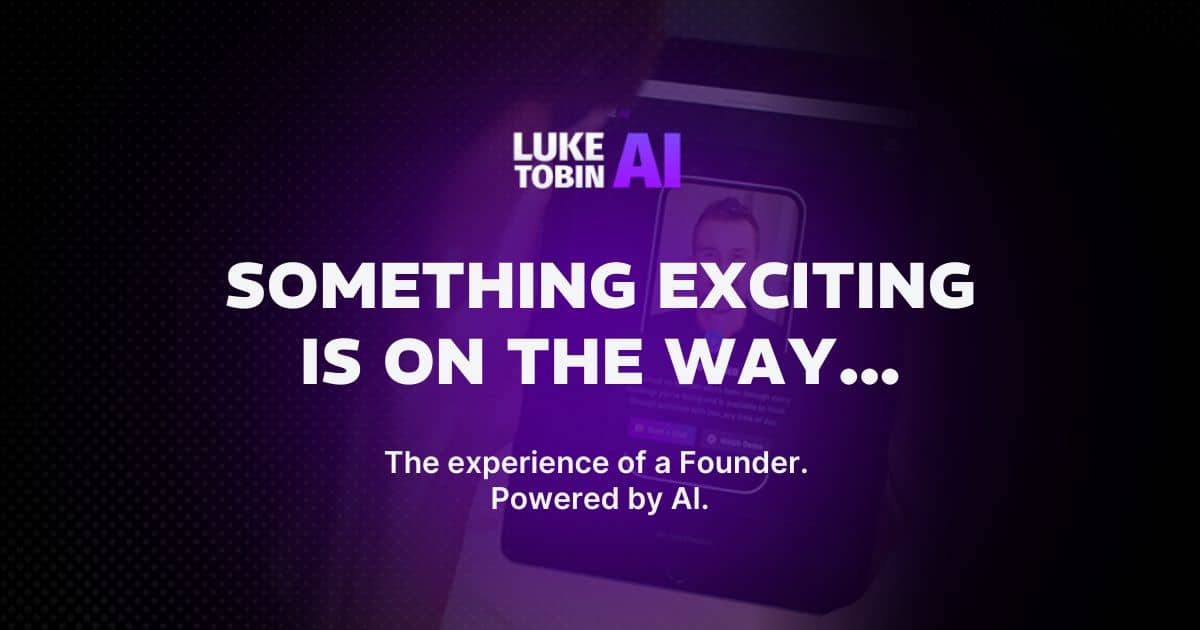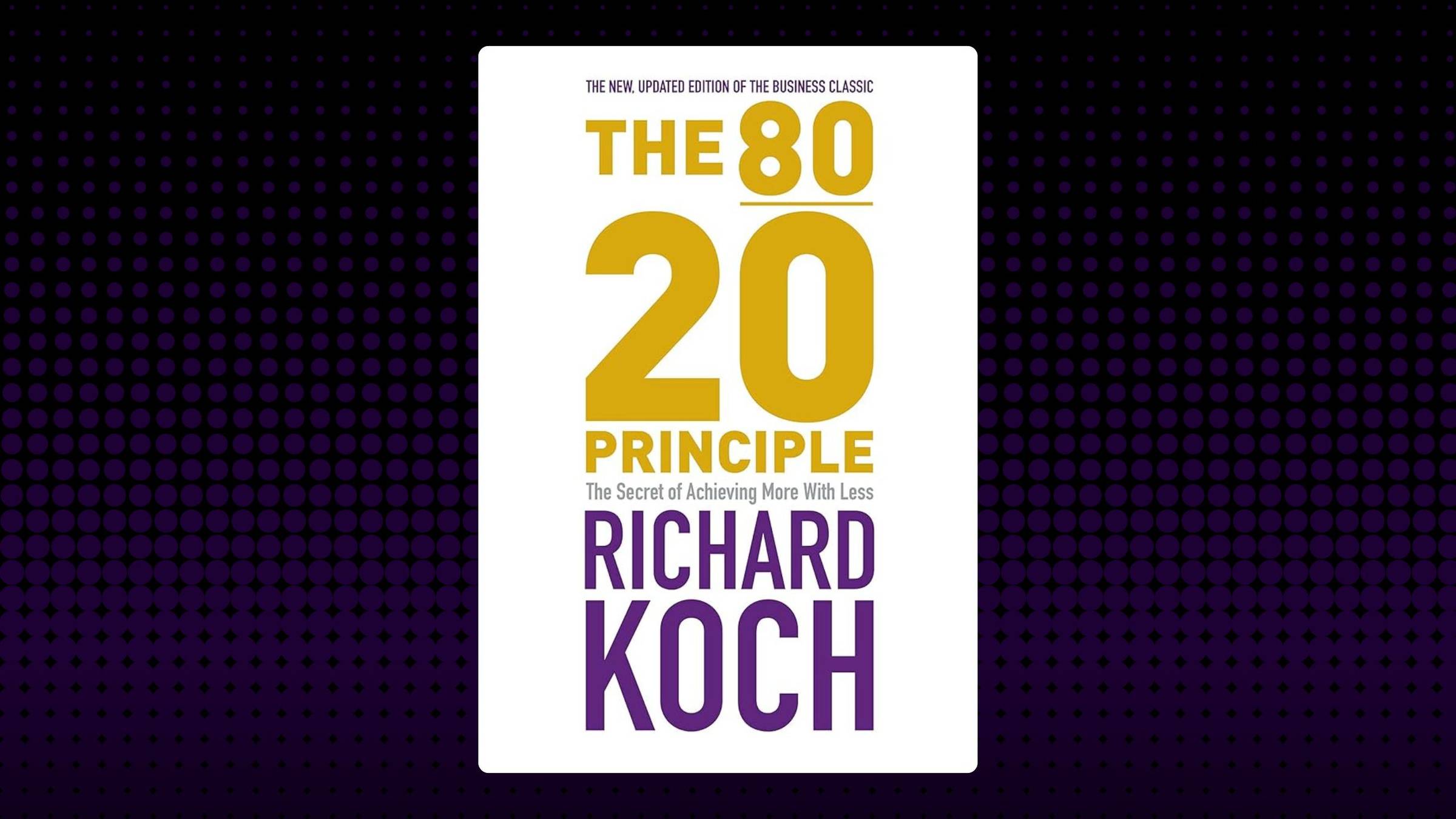

I recently worked with a founder who was constantly on the move.
Every week: new campaigns, new hires, new projects.
But despite the flurry of activity, revenue wasn’t moving.
When we dug deeper, the truth was obvious:
80% of his results were coming from 20% of his actions.
Everything else? Distraction disguised as progress.
That’s the 80/20 principle.
The problem?
Your brain burns just as much energy deciding on which £50 tool to purchase as it does on a £5M opportunity.
That’s why you feel drained at the end of the day, yet still question whether you've moved the business forward.
This is where the Pareto Principle (also known as the 80/20 rule) collides with your cognitive load.
Behavioural science shows that we suffer from decision fatigue; the more decisions we make, the lower the quality of our decisions becomes.
The problem isn’t that founders don’t know it. It’s that they rarely apply it, until a crisis forces their hand.
Think back to Covid:
Why?
Because they were finally forced to double down on the 20% that mattered most.
The lesson is simple: why wait for chaos to force clarity?
Emotions run the show more than we care to admit.
I’ve seen agencies cling to:
It feels wrong to cut what got you here.
But that loyalty can be what keeps you stuck.

Here’s the harsh truth:
Overserving small clients while underserving your best ones isn’t noble.
It’s unprofitable.
Airlines get this. High-paying passengers get elite treatment.
Everyone else still gets to their destination safely, but they aren’t treated the same.
Most founders struggle with this reality.
But the businesses that scale?
They stop treating every action, every client, and every project as if they were equal.
They focus ruthlessly on the 20% that actually drives outcomes.
The 80/20 rule makes people squirm because it exposes what’s really happening.
And that can hurt.
But here’s the cost:
While you’re spread thin, competitors are pouring all their energy into the 20% that grows faster than the market.
Inaction has a price tag. And it compounds.
Ask: “What are the 20% of your choices that will drive 80% of your results?”
Think of your decisions in three tiers:
Acquisitions, pricing, key hires, partnerships.
These are the gold dust.
Slow down, go deep, protect your brainpower in these areas.
Systems, processes, budgets.
These are important, but batch them.
Don’t let them bleed into every day.
Travel, tools, admin. Automate, delegate, or cut them altogether.
Not everything deserves your founder brain at full tilt.
Although the 80-20 rule highlights the importance of focusing your energy on those aspects of your business or life that yield the best results, it does not mean people should then ignore the less successful areas. It's about prioritising focus and tasks, and then solving problems that arise from that focus.
✔️Write down the last 10 decisions you made.
✔️Circle the two that actually moved your business forward.
Now ask yourself:
What if you doubled the time you spent on those… and halved the time you spent on the other eight?
That’s leverage. That’s scale.

Big decisions shouldn’t be made alone. That’s why I’ve been working on something close to my heart, my passion project, Luke Tobin AI.
Built to bridge the skills and experience gap that so many founders face, Luke Tobin AI provides you with wisdom from my seasoned experiences combined with the power of AI. Soon, you’ll have a partner to help you scale smarter, exit stronger, and make confident decisions 24/7.
Keep an eye on my socials for more information.

This isn’t just another productivity book; it’s a reset button for how you think about effort and reward. Koch reveals a simple truth most founders overlook: the world is uneven. A small handful of inputs drive the majority of outcomes. Once you see it, you can’t unsee it.
For founders, this shift is huge. It takes you out of firefighting mode and into focus. Less noise. More clarity. More growth without the grind.
It’s a book I keep coming back to whenever things feel overwhelming, and I suggest you do the same.

The 80/20 rule only works if you can actually stay focused on the 20% that matters. But in today’s world, distraction isn’t just a nuisance; it’s engineered. This toolkit provides a set of practical, science-backed strategies to break free from dopamine-driven habits and reclaim your attention.
Think of it as a system reset: fewer pointless scrolls, more energy for high-leverage work, and sharper focus when it counts.
Next week, we’re diving into what I call the Founder’s Leverage Audit. You’ll learn how to take an honest look at where your time goes, how your team actually multiplies (or drains) your capacity, whether your tech stack is a force multiplier or a busy‑work generator, and how capital can be redeployed for faster, more sustainable growth. This isn’t about doing more work; it’s about using the levers you already have to get outsized results.
If you’ve ever felt like you’re spinning your wheels despite hiring, investing, and pushing harder, the Leverage Audit will show you where to focus so your hours compound, your team scales, your tools amplify, and your capital creates real value.
What’s your biggest sticking point in delegating? Hit reply and let me know. I’ll answer a few of your questions in next week’s issue, and I’m always looking to feature real founder challenges (and wins) in this newsletter. Let’s get you out of the weeds together.
To your unstoppable success,

Writer, The Success Method





%20(1).webp)
.jpg)
